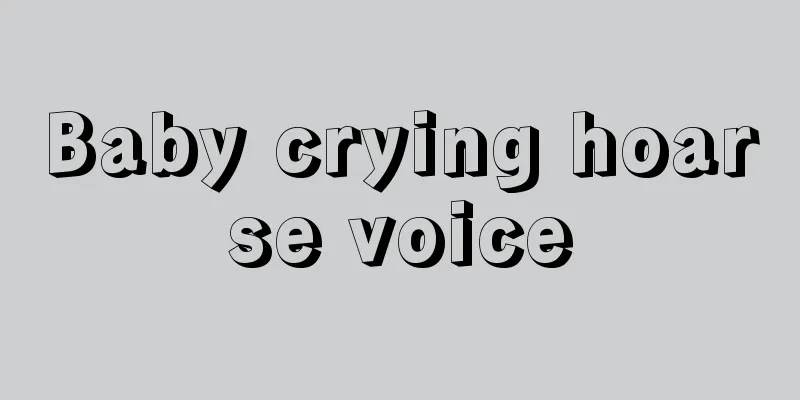What are the standards for infant intellectual development?

|
Babies are angels in the eyes of every parent. Since having their own babies, they start to worry about this or that problem. They worry that their babies will be called ugly, or that their babies are not smart and will do poorly in academic performance in the future, etc. Today we will talk about the standards for infant intellectual development to help parents dispel their worries and feel happy for their babies' growth step by step. Infant intellectual development standards: At 1 month: The baby starts to smile. At 2 months: The baby can lift his head when supported from prone position, smiles at people, and looks at people's faces and toys. The eyes and head will move with the light; At 3 months: the baby's head does not droop when he is propped up from his back, and can be lifted up when held in an upright position. He can turn over when lying down, kick his feet, make fists and stretch his hands, move his legs and feet around, and is very active. When shaking a toy that makes a sound, he can turn to the side where the sound is made, recognize the bottle, and turn his head towards the place where the sound is made, which means that his hearing is developing normally; his eyes can follow the movement of objects, and he smacks his lips when he sees the breast or bottle, which means that his vision is developing normally; he cries when he is hungry, angry, frightened, or feels unwell, which means that his central nervous system is developing normally. At 4 months: The baby can lift his head and shoulders when lying on his back; he can grab toys hanging above his chest, shake a toy in each hand at a time, and put the toys in his hand into his mouth. At 6 months: the baby can roll over, stand with support under the arms, jump, hold objects with several fingers, reach out to grab things, and respond when called; At 9 months: the baby can sit steadily, crawl, and recognize relatives and strangers; At 10 months: the baby can not only sit steadily for a long time, but also has greater strength to grab things with his hands, and his fingers are more flexible. He can sit and play by himself. He is very interested in toys and will grab things around him to play. He can also watch adults' actions carefully and imitate them. At 12 months: The baby can stand, take steps with the help of the edge of the bed or support, pick up small balls with the thumb and index finger, put down things in his hands, and sometimes make sounds that sound like mom and dad, but the sounds are very unclear. Sometimes the baby will do dangerous actions, and the mother should say: No, don't move, and reprimand the baby in a gentle tone at any time. The baby can remember the reprimand during this period and will not think that being reprimanded is a bad thing. Parents have the responsibility to prevent accidents because children don’t understand anything when they first come into the world. This is also a kind of training for children. The above are the specific matters of the infant intellectual development standards. You can compare these standards to see if your baby has reached such standards. If your baby does not reach this standard by the age of one, it largely indicates that the baby's neurological development is relatively slow. Therefore, parents can take their babies to the hospital for examination in a timely and effective manner to achieve early detection and early treatment. |
<<: What are the standards for infant intelligence development?
>>: Treatment of tonsillitis in a two-year-old baby
Recommend
Why does a child clench his teeth when sleeping?
Careful parents may find that their children grin...
How to prevent children's diseases in spring
Diseases can occur in any season, but children ar...
What to do if your four-year-old baby wets the bed
Everyone has experienced bedwetting. This is beca...
What to do if a child has a fever
Generally speaking, our normal body temperature i...
What should I touch when my baby's neck is submerged?
We will find that many fat babies actually have p...
Newborns poop a little bit each time?
After the baby is born, the stomach and intestine...
What are the symptoms of bronchitis in children
Generally speaking, children with bronchitis will...
What are the dietary treatments for baby colds?
As the saying goes, "All medicines are poiso...
What are the dietary treatments for children with fever?
Children have a poor appetite during a fever, and...
What is the baby's development standard at 6 months of pregnancy?
For a pregnant mother who is 6 months pregnant, i...
What is the cause of the child's stomach rumbling and vomiting?
For children, the stomach and intestines are rela...
What to do if your baby wakes up coughing
Coughing is a very common symptom. We all know th...
What does it mean if a child has a fever in the afternoon?
Many children will have a fever in the afternoon,...
How to solve external ear deformity in children?
If parents find that their baby's external ea...
What causes newborn hiccups?
Babies’ immunity is not as strong as that of adul...









